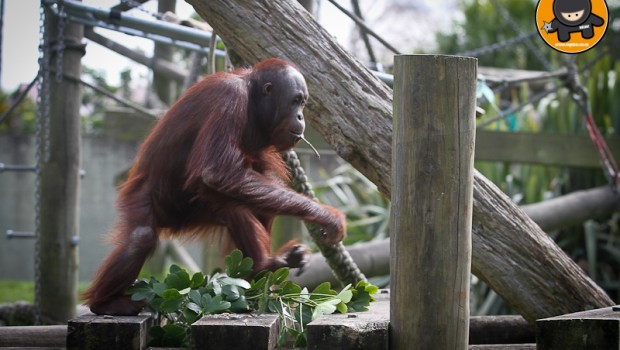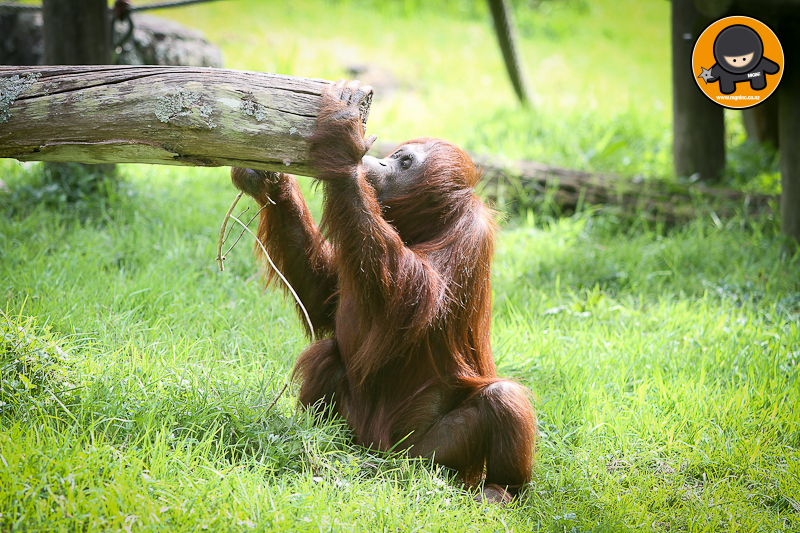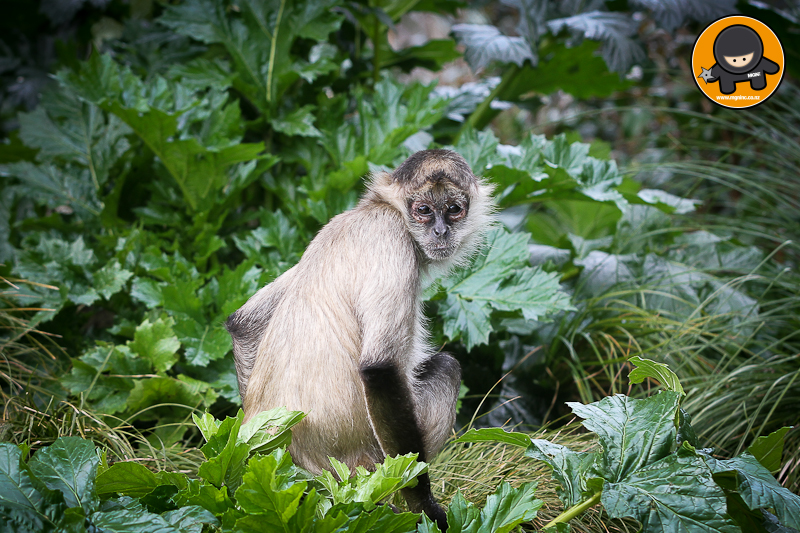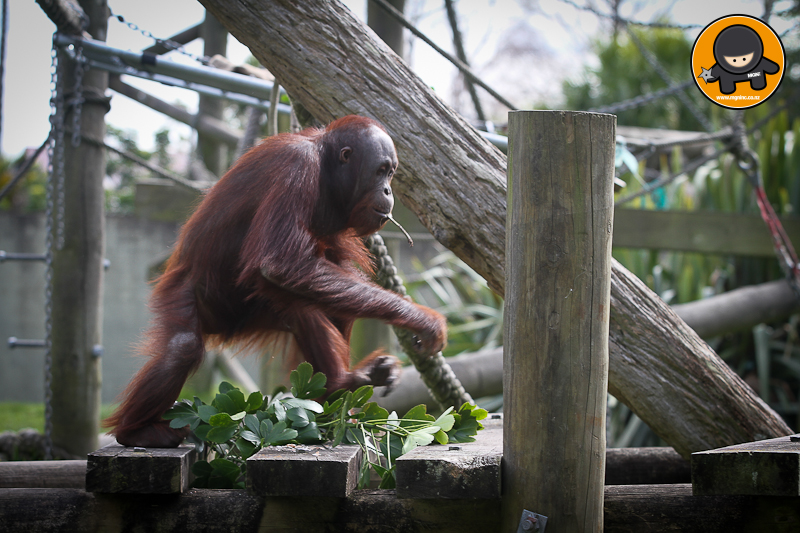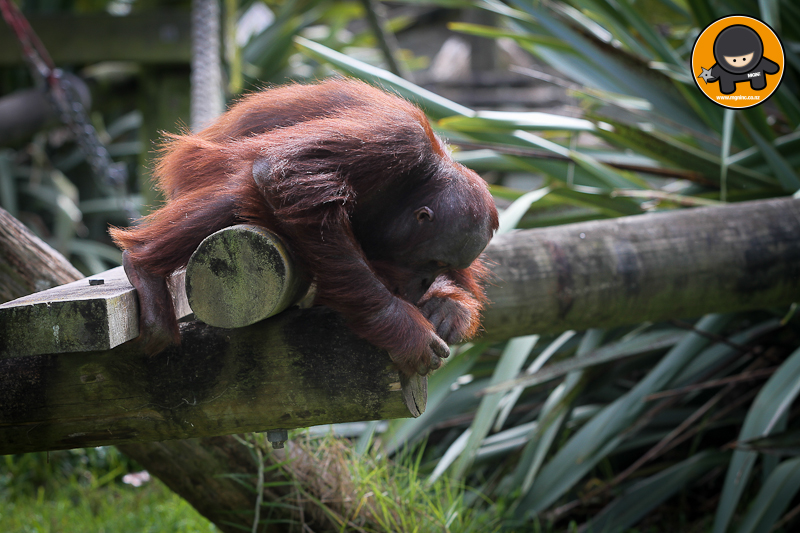An insight into a special world.
Sometimes , you find that the world is a smaller place than you might think, and this is particularly true when you live in NZ. It’s often more like 2 degrees of separation than 6.
Hi, I’m Carly and I’m a keeper on the Primate Section at Auckland Zoo. My history before that was as a Vet Nurse in domestic practice, which I enjoyed, but really wanted to do something that would help the planet/environment/animals a lot more.
There is only one course in NZ that specifically trains zookeepers, which is the Captive Wild Animal Management Course through Unitec. This is a year long course which involves one day a week work experience at the zoo rotating through all the different areas (including horticulture, vet department and all animal species). I did this course in 2004, as well as volunteering at the zoo on my weekends and was lucky enough to score some casual work at the end of that year. I’d suggest that people interested in a career in zookeeping should get involved with animals any way possible, whether it’s volunteering at the SPCA, the zoo, even having animals of their own, any experience is invaluable. I’d also recommend the Unitec course I did, but any course that involves biology or zoology is valuable. Anyway, I finished my course and was lucky enough to get the top student award and land a job on the Exotic Birds Section at Auckland Zoo!
Two years later I moved to the Primate Section and have been there ever since. I chose to remain with primates and specialise with them, and my particular passion is Orangutans even though I love all the monkeys and apes (explains you being mates with Dodgy) ![]()
Orangutans are a really interesting species to work with as in the wild they are solitary animals. This means that they don’t communicate or form bonds quite the same way as a social species like chimpanzees do. For me this meant that it took a looooong time to form a bond with them. They don’t instantly like you or seek you out, it’s sort of like you have to earn their trust and respect and vice versa. This makes it ultra rewarding for me as when you do have that hard-earned bond it is very meaningful! their communication and reaction to us is rather subtle – whereas the Chimpanzees or Spider Monkeys will run to the door and greet us with excitement, Orangutans will merely glance at your direction. If you’re really lucky they will deign to come over to the door and hand you a branch or piece of paper and spend time sitting close with you. These are my most special and rewarding moments at work.
We don’t go in with our Orangutans as they are incredibly strong (males 8x as strong as humans, females 4x) and could potentially do a lot of damage. Also we want them to stay as “naturalistic” as possible in a zoo environment.
Its hard to pin a humanistic trait on them – there are many. In the mornings they have bed hair and sleepy eyes, they enjoy sitting in the sun (after the sloth they are the most energy conserving animal on the planet), they can bully each other, or be sweet to each other, they wrestle and play together, they like to try and get one over on their keepers, they can be grumpy, scared, excited, sad, or even laugh.
Madju (shown below) our 6 year old boy is a total show off and a typical little boy. He likes to rough and tumble with the adults and is always doing rolly pollys or showing off to the zoo visitors. He loves to be the centre of attention!
Our encounters at the zoo are really important to us as it’s our chance to show people our amazing animals and tell them how they can help save them. I used to be terrified of public speaking when I started but after a few years practice it’s not so bad haha. We can’t force our animals to do anything they don’ want to (and would never try!) so all our management is done by trust, cooperation and positive reinforcement. Before encounters we usually set up an inside area with nice food, or fun things to do, then ask the orangutans to come in. Of course they usually want to so is no problem to shut them in, set up fun things outside and let them out for the encounter. However there is the odd day where one might decide not to, and that’s fine, it just means we aren’t able to set up things for the Orangutans to do during the encounter and it’s a little less exciting!!

